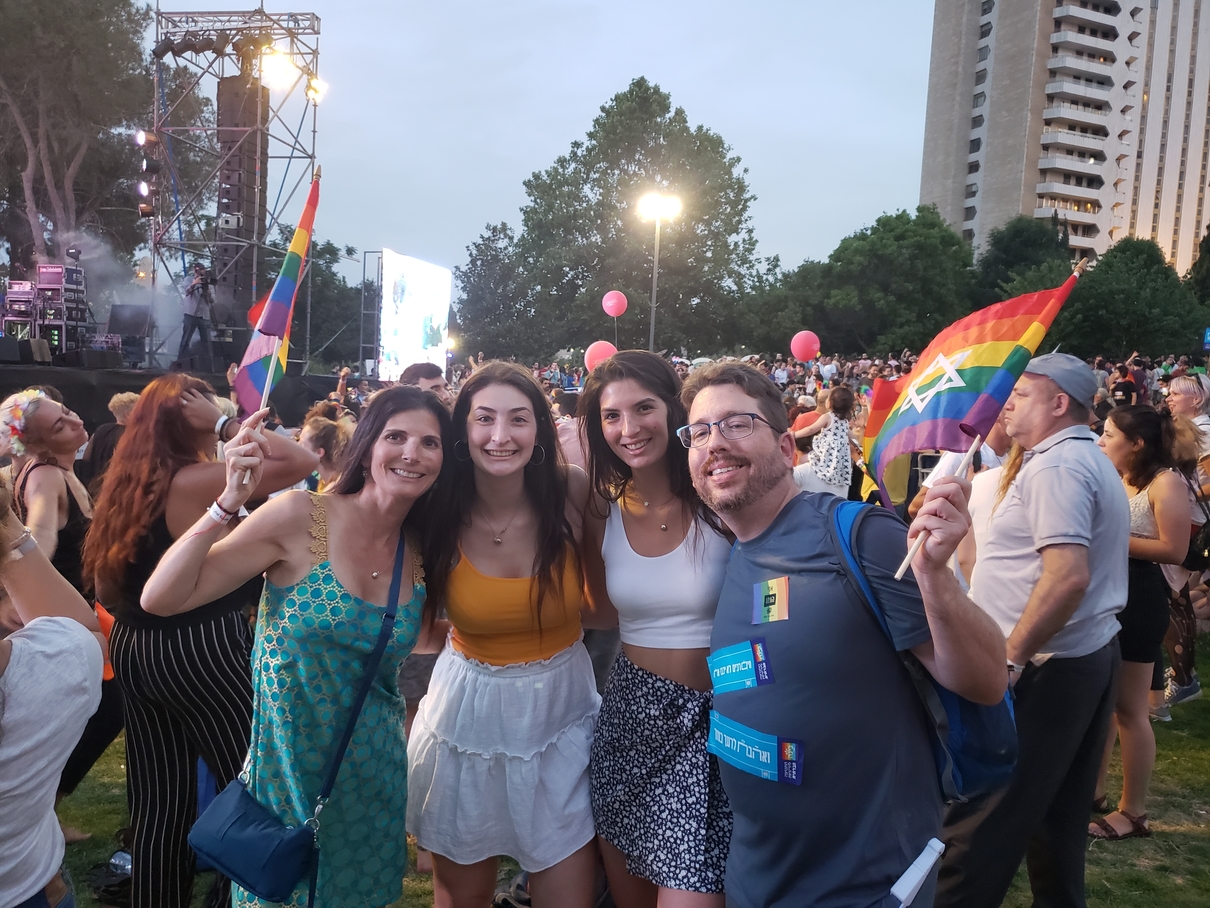
By Rabbi Gideon Estes, June 8, 2021
Note: This blog post was featured as part of our #HeshbonHodesh: Tamuz monthly newsletter.
June marks LGBT Pride Month and I have been reflecting on what this means to me as a Jew, as a Gay Man, and as a Rabbi. And I am wondering if it holds broader lessons that apply to all people? The answer is yes. There are lessons for all. In this column, I will share my thoughts on what Pride means to me.[1]
Pride is a time that celebrates visibility and value. For a long period of time members of the LGBTQ community lived in the closet and internalized feelings of shame and guilt. I myself had these feelings of not wanting to accept who I was or to see my value as being made in the Image of God. Thanks to years of hard work with therapists, support groups, deep self-reflection, and belonging to an affirming and welcoming community, Congregation Or Ami in Houston, I was able to embrace my full identity and no longer live in fear. Pride celebrations help me rejoice in who I am. It clarifies to me that there is no shame in love. When a person looks at me, they do not know that I am Gay nor that I am a Jew. (Assuming I am not wearing a kippah.) I can pass; however, I choose to be open about my identity. I do not hide that I am a Jew. I proudly wear my Kippah. A major part of my identity is that I am Jewish. Being a part of a small minority shapes my experiences and my world view. I am attuned to the suffering of people. I am shaped by our rich history, both our triumphs and our hardships. My identity as a Gay man is similarly shaped by the history of the Gay community. When I read the biography of Harvey Milk, I could see myself in his story on a visceral level, since he was both Jewish and Gay. The history of exclusion and the fight for inclusion is real.
Our tradition teaches us to be proud of ourselves, and to believe in all we can accomplish. Rabbi Hillel taught in the Mishna, “If I am not for myself who will be for me?”[2] This teaching reminds us that we need to believe in, advocate for and affirm our identities. This is a message we can all hold onto. A person affirming their identity is not discounting others experience. The message of Rabbi Hillel and of Pride is not a zero-sum game. If one person is proud it does not mean that someone else needs to feel less. We all have inherent worth and we all need to be reminded of that. This message is expressed beautifully in the Wisdom of Ben Sira, “Do not give yourself over to sorrow or distress yourself deliberately. A merry heart keeps a person alive, and joy lengthens one’s days.”[3] This teaching reminds us that we need joy in our lives. This is another message of both Judaism and Pride. Joy brings light and hope into our beings, and when we have those things, we are able to make God manifest in the world.
Pride embodies for me the message that I can need to joyfully celebrate and affirm myself. It reminds me that I do not need to hide in the shadows. My time in the seminary I was not my full self because I was not yet out. Pride reminds me that my whole self is made in the image of God. By being so public it let’s others know they too can let their light shine.
I pray that everyone reading this is reminded that they are special and of value. You are made in the Image of God and, despite whatever differences make up the mosaic of you, it is worthy of celebration.
Rabbi Gideon Estes is the Rabbi of Congregation Or Ami in Houston, TX. He is also one of the co-facilitators of the LGBTIQ+ Rabbis Affinity Group. If you are interested in joining this group please feel free to reach out to him.
Read the other blog posts in this series:
- Celebrating Pride in a World So Far From Whole
- How the Rabbinate Helped Me Come Out
- What It Means to Be an Ally
[1] For those that would like to learn more about what is Pride please see https://en.wikipedia.org/wiki/Gay_pride
[2] Mishna Avot 1:14
[3] Wisdom of Ben Sira, Capter 30 as refrenced on https://www.hillel.org/about/news-views/news-views---blog/news-and-views/2017/02/28/-if-i-am-not-for-myself-who-will-be-for-me-a-discussion-for-developing-a-practice-of-self-care